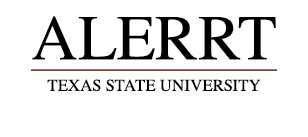The Active Attack Integrated Response Train-the-Trainer Course (AAIR) is a performance level course designed to improve integration between law enforcement, fire, tele-communicator and emergency medical services (EMS) in active attack / shooter events. The course provides law enforcement officers with key medical skills based on tactical emergency casualty care (TECC) guidelines, which can be used at the point of injury (POI) to increase survivability of victims. The course also provides a model framework for law enforcement, fire, and EMS to integrate responses during an active attack / shooter event through the rescue task force concept. This course has been designed to improve the safety and survivability of victims of active attack / shooter events and increase the effectiveness, coordination, and resource integration between law enforcement, fire, tele-communications and EMS when responding to these events.
Course Types
AAIR Basic
Time: (16 hours/2 days)
Prerequisite: Participants must be licensed law enforcement officer; active or retired, fire, Tele-communicator or EMS providers. EMS providers should be EMT-B certified (preferably EMT-I or EMT-P).
Required Equipment: Good attitude, open mind, pen and paper, duty gear, and appropriate clothing for "force-on-force" training (i.e. long sleeve shirt, gloves, etc.)
Download course flyers here
AAIR Train-the-Trainer
Time: (40 hours/5 days)
Prerequisite: Participants must be licensed law enforcement officer; active or retired, fire, Tele-communicator or EMS providers. EMS providers should be EMT-B certified (preferably EMT-I or EMT-P).
Required Equipment: Good attitude, open mind, pen and paper, duty gear, and appropriate clothing for "force-on-force" training (i.e. long sleeve shirt, gloves, etc.)
Download course flyers here
Hosting Information
Hosting Requirements
If you are interested in hosting this class, please see the requirements listed below then fill out a Hosting Request Form.
1) The primary host agency must be a state or local agency.
2) Each class is required to be filled with sworn state and local law enforcement officers, Tele-communicators and Fire/EMS personnel from multiple agencies. In the event that federal or military personnel are inquiring about registering, and you have given priority to state/local officers, you are allowed up to 3 slots to approve for federal/military. These federal/military students must not take seats from state or local officers.
3) The host agency is required to provide the following facilities, classroom, and logistical needs:
- Building or structure, preferably a school or large dedicated law enforcement or fire training facility. The course will involve the use of both the interior portion of the building as well as exterior portions.
- With electricity, functional lighting, climate control, running water, and functioning restroom facilities
- Minimum of two long hallways, with multiple rooms for teaching tactics, rescue task force integration, and medical stations, if available
- Capability of using exterior areas (parking lot and common areas) of the facility
- Access to the facility the day prior to the first class for classroom set up
- Classroom capable of seating 50 personnel with ability for note taking
- Power outlets to set up A/V equipment
- Projector screen or white wall
- A location to receive and secure equipment in close proximity to the class
- Secured location for 8 containers of training materials (from 25”x20”x14” to 34”x25”x24” weighing up to 140 pounds per case)
- Water coolers or bottled water for participants on day 2 practical exercises
- 2 ambulance vehicles for day 2 practical exercises, if available
- 2 local agency dispatch personnel (one police and one fire and EMS if not combined operators) for day 2 practical exercises if possible
- Duty radios for use in train-ups and scenarios is strongly encouraged. This allows each individual to work with their equipment they’ll be using in an actual incident as well as it tests interoperability of the system once multiple agencies are on scene
- Signs that can be placed at the training venue indicating the area is being used for law enforcement, fire and EMS training (if necessary and dependent upon the training location)
4) The host agency will be responsible for registration. We will post the class to our website under ‘Upcoming Courses’, and list the POC’s contact information for registration. Under special circumstances, we can remove the class from the website at the agency’s request.
5) The host agency is responsible for the advertisement of the class. We will send you the course flyer for distribution.
6) ALERRT will issue certificates for all classes.
7) In the event a class can’t be filled ALERRT reserves the option to open registration nationwide or cancel the class.
For questions specific to this course type, please contact your ALERRT Regional Manager directly.
